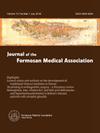台湾版自闭症谱系障碍情绪失调量表的心理计量特性。
IF 2.5
3区 医学
Q1 MEDICINE, GENERAL & INTERNAL
引用次数: 0
摘要
背景:针对自闭症患者的情绪失调量表(EDI)已在许多西方国家得到验证:针对自闭症患者的情绪失调量表(EDI)已在许多西方国家得到验证,但在东亚地区其心理测量特性仍不明确:我们将情绪失调量表翻译成繁体中文,并在台湾的自闭症儿童和青少年中对其心理测量特性进行了评估。我们从五项临床试验中招募了 200 名 7-30 岁的参与者(182 名男性/18 名女性),并进行了二次分析,评估了内部一致性信度、确认性因子分析和收敛效度:结果表明,台湾版 EDI 具有很强的内部一致性(Cronbach's alpha 分别为 0.978 和 0.864)。确认性因素分析表明双因素结构的拟合度可以接受。台湾版 EDI 与 "异常行为检查表-易怒性分量表 "和 "儿童行为检查表-行为失调量表 "等已建立的测量方法具有良好的收敛效度:我们的研究结果表明,台湾版 EDI 是评估台湾自闭症儿童和青少年情绪失调的可靠且潜在有效的工具。本文章由计算机程序翻译,如有差异,请以英文原文为准。
Psychometric properties of the Taiwan version of Emotion Dysregulation Inventory in Autism Spectrum Disorder
Background
While the Emotion Dysregulation Inventory (EDI) for autistic people has been validated in many Western countries, its psychometric properties have remained unclear in East Asia.
Methods
We translated the EDI into traditional Chinese and evaluated its psychometric properties among autistic children and youth in Taiwan. We enrolled 200 participants (182 male/18 female) aged 7–30 years from five clinical trials and conducted secondary analyses, assessing internal consistency reliability, confirmatory factor analysis, and convergent validity.
Results
Our results showed that the Taiwan version of the EDI had strong internal consistency (Cronbach's alpha are 0.978 and 0.864 for each factor). Confirmatory factor analysis demonstrated acceptable fit of two-factors structure. The Taiwan version of EDI showed good convergent validity with established measurements including the Aberrant Behavior Checklist-Irritability subscale and Child Behavior Checklist-Dysregulation Profile.
Conclusion
Our findings support the Taiwan version of EDI is a reliable and potentially valid instrument for assessing emotion dysregulation in autistic children and youth in Taiwan.
求助全文
通过发布文献求助,成功后即可免费获取论文全文。
去求助
来源期刊
CiteScore
6.50
自引率
6.20%
发文量
381
审稿时长
57 days
期刊介绍:
Journal of the Formosan Medical Association (JFMA), published continuously since 1902, is an open access international general medical journal of the Formosan Medical Association based in Taipei, Taiwan. It is indexed in Current Contents/ Clinical Medicine, Medline, ciSearch, CAB Abstracts, Embase, SIIC Data Bases, Research Alert, BIOSIS, Biological Abstracts, Scopus and ScienceDirect.
As a general medical journal, research related to clinical practice and research in all fields of medicine and related disciplines are considered for publication. Article types considered include perspectives, reviews, original papers, case reports, brief communications, correspondence and letters to the editor.

 求助内容:
求助内容: 应助结果提醒方式:
应助结果提醒方式:


